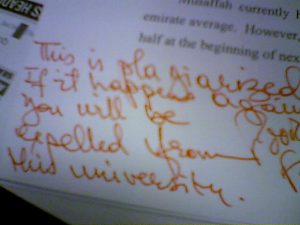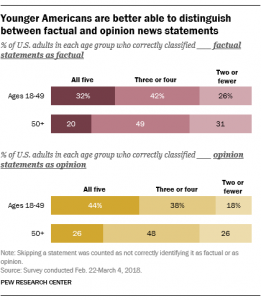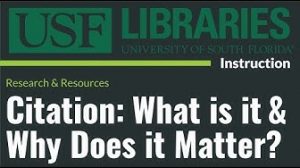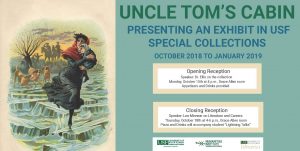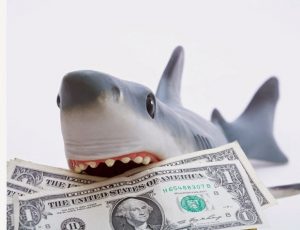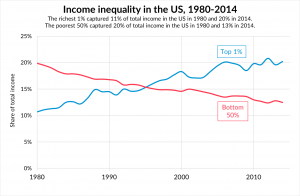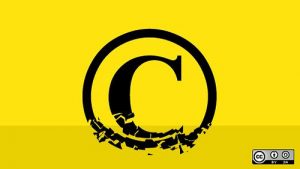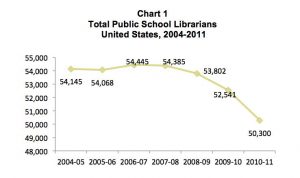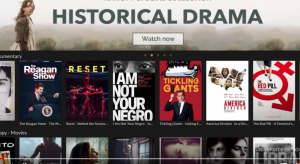This piece by Alexandra Gold discusses ways to rethink how faculty talk to students about the issue of plagiarism. Also, keep in mind that the library can offer extra credit workshops on plagiarism for your courses, along with embedded modules we can place into Canvas.
The EdLib Report
Identifying Fact vs. Fiction: Pew Study Results
A new analysis from the Pew Research Center indicates that younger Americans are better than their elders at separating factual from opinion statements in the news. In a recent survey from Spring of 2018 adults were asked to categorize five factual statements and five opinion statements. Results showed that overall, 44% of the population from 18-49 got all five correct, while the above age 50 group managed only 26% correct.
Citation: What is it and Why Does it Matter?
Students often get confused about citing their sources and where to get help with APA, MLA and other citation formats. This video overview about citing sources might help. Please encourage students to talk to the writing center tutors or a librarian if they need assistance!
Visual Archive of “Uncle Tom’s Cabin”: Race and Visuality in American Literature, Arts, Crafts, and Objects
From Monday, October 15th until January 31st, USF Libraries, Humanities Institute, and English Department present Dr. R. Ellis’s rich collection of visual art and other objects related to the 19C American abolitionist novel “Uncle Tom’s Cabin” by Harriet Beecher Stowe. The exhibit features surprising and unusual competing interpretations of race and ethnicity, and prompts viewers to explore the diverse understanding of race relations, the abolitionist movement, and later civil-rights movements in the United States. This historical and literary exhibit is the largest collection of objects related to Stowe’s novel. Visit the Grace Allen Room, 4th Floor, USF Library, Tampa Campus. 4202 E. Fowler Ave, Tampa, FL
Cabell’s Blacklist is Here
There currently exists a black market economy of publishing scams, typically referred to as “predatory journals.” These are journals designed to look like genuine scholarly sources, but they publish whatever an author submits in return for payment of an article processing charge (APC). The purpose of a predatory journal blacklist is to identify and call attention to such scam operations so that unsuspecting authors are not fooled into publishing in these journals. Cabell’s has been a well regarded journal directory and now offers a blacklist which the USF Libraries has purchased. It is a welcome development for scholars. Criteria for inclusion on this list are clearly set out and publicly available. Blacklist ratings are given at the journal level with indicators about violations of Cabell’s criteria. This resource should help USF Scholars in avoiding predatory, questionable, or low-quality journals.
World Inequality Database
The World Inequality Database (WID) is an open-access database of the world’s historical and current distribution of wealth and incomes within and between countries. It’s goal is to offer high quality data on issues of economic inequality and at the same time promote democratic transparency. More than 100 researchers from 70 countries contribute to this resource which is coordinated by an executive committee of five codirectors from the Paris School of Economics and the University of California Berkeley. Academics in many disciplines will find this useful because it offers visual representation of data on key indicators regarding inequality.
Publishers take ResearchGate to Court Claiming Massive Copyright Infringement
Science reports that scholarly publishing giants Elsevier and the American Chemical Society (ACS) have filed a lawsuit in Germany against ResearchGate, a popular academic networking site, alleging copyright infringement on a mass scale. The move comes after a larger group of publishers became dissatisfied with ResearchGate’s response to a request to alter its article-sharing practices.
U.S. Public Schools Have Lost Nearly 20% of Their Librarians Since 2000
A recent Forbes report indicates that from 1999-2016 public schools lost 19% of full time equivalent school librarians, according to a School Library Journal article that offered data on the topic from the National Center for Education Statistics. The most dramatic drop was occurred during the Great Recession of 2008 and has not recovered since. Studies have shown that school libraries and librarians have a positive impact on literacy and student success.
Introduction to Kanopy Streaming Videos
This quick video introduces a fantastic resource that the USF Library offers. It is the “educational Netflix” with classic and contemporary films along with nonfiction, documentary, and educational titles.
Books Save Lives Reception October 11th
Hear award-winning author Alex Flinn at the “Books Save Lives” Reception on October 11, 2018 from 5:30-7:30 PM at the USF Alumni Center. In addition to Ms. Flinn’s talk, you will have the opportunity to bid on autographed young adult books, posters, …Continue Reading
